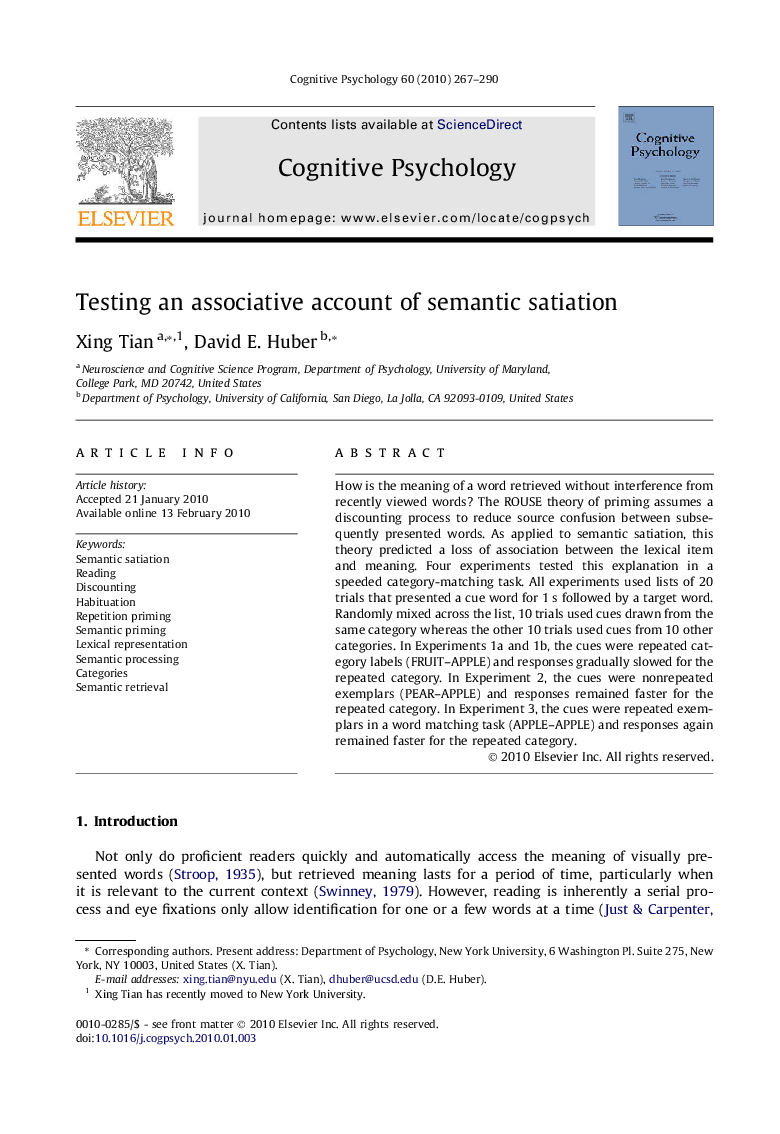| Article ID | Journal | Published Year | Pages | File Type |
|---|---|---|---|---|
| 916976 | Cognitive Psychology | 2010 | 24 Pages |
How is the meaning of a word retrieved without interference from recently viewed words? The ROUSE theory of priming assumes a discounting process to reduce source confusion between subsequently presented words. As applied to semantic satiation, this theory predicted a loss of association between the lexical item and meaning. Four experiments tested this explanation in a speeded category-matching task. All experiments used lists of 20 trials that presented a cue word for 1 s followed by a target word. Randomly mixed across the list, 10 trials used cues drawn from the same category whereas the other 10 trials used cues from 10 other categories. In Experiments 1a and 1b, the cues were repeated category labels (FRUIT–APPLE) and responses gradually slowed for the repeated category. In Experiment 2, the cues were nonrepeated exemplars (PEAR–APPLE) and responses remained faster for the repeated category. In Experiment 3, the cues were repeated exemplars in a word matching task (APPLE–APPLE) and responses again remained faster for the repeated category.
